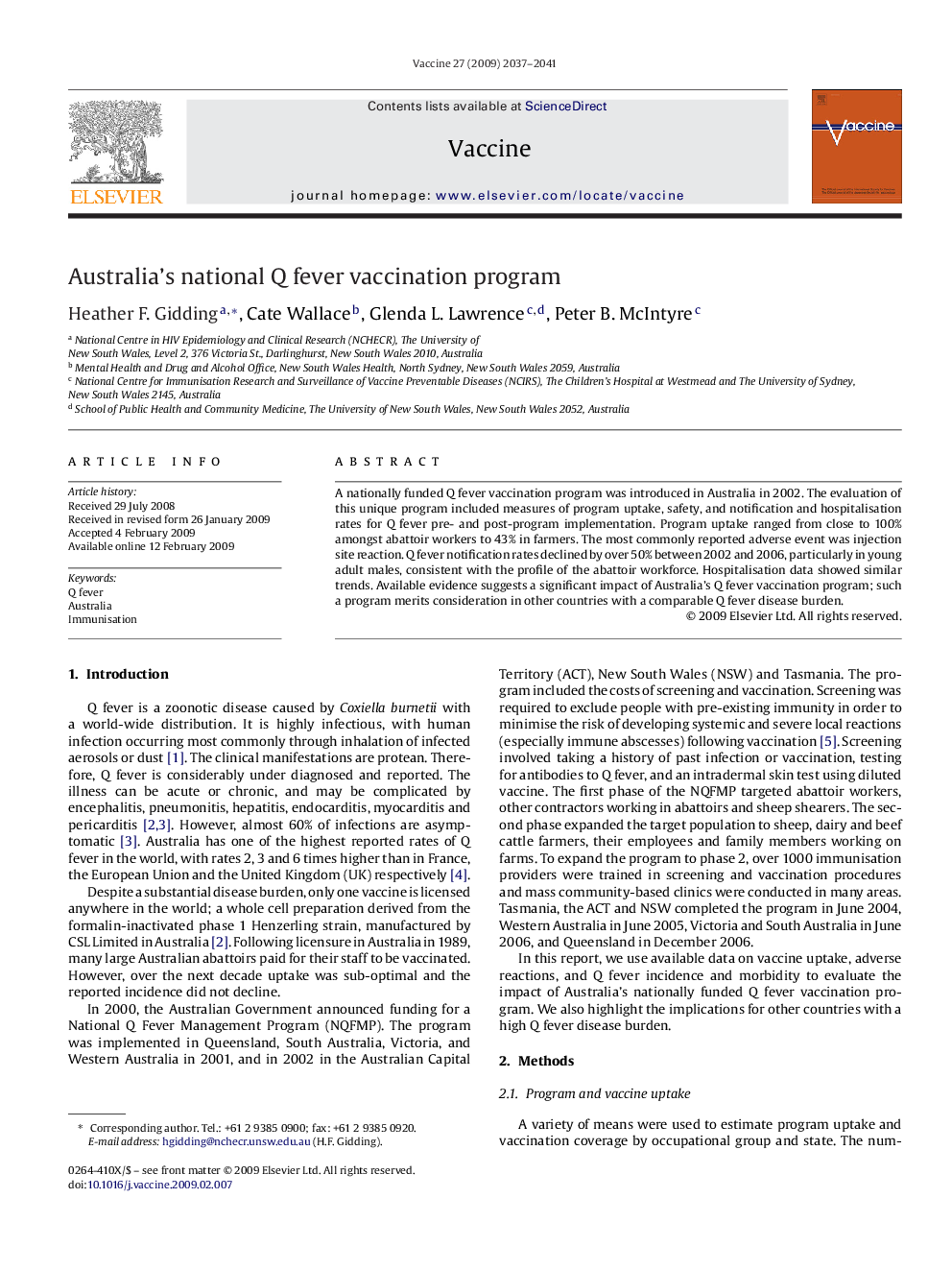| Article ID | Journal | Published Year | Pages | File Type |
|---|---|---|---|---|
| 2407053 | Vaccine | 2009 | 5 Pages |
A nationally funded Q fever vaccination program was introduced in Australia in 2002. The evaluation of this unique program included measures of program uptake, safety, and notification and hospitalisation rates for Q fever pre- and post-program implementation. Program uptake ranged from close to 100% amongst abattoir workers to 43% in farmers. The most commonly reported adverse event was injection site reaction. Q fever notification rates declined by over 50% between 2002 and 2006, particularly in young adult males, consistent with the profile of the abattoir workforce. Hospitalisation data showed similar trends. Available evidence suggests a significant impact of Australia's Q fever vaccination program; such a program merits consideration in other countries with a comparable Q fever disease burden.
